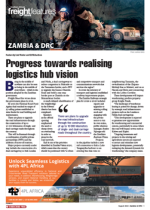European and American government agencies are working with mining companies in the Copperbelt to add value at source to the minerals used in the manufacture of batteries for electric vehicles (EVs).“The objective is ensuring critical minerals are produced, processed, and recycled in the DRC so that the Congolese people can realise the full economic development potential of their mineral resources,” according to a statement issued after a September 2023 workshop attended by delegates from the Democratic Republic of Congo (DRC), Zambia and the United States.“The DRC produces 70% of the world’s cobalt and is Africa’s leading producer of copper, both of which are crucial for the clean energy transition to help reduce carbon emissions and support the global response to the climate crisis,” according to the statement.Processing at source will help reduce the carbon footprint of the EV value chain, according to an MoU signed by the US, the DRC and Zambia.The US is looking to the private sector to fund the value-addition, committing itself to take “appropriate steps” to promote awareness of the DRC and Zambia electric vehicle battery initiative within the US to facilitate potential US private-sector participation in such projects.In October 2023, the European Union signed an MoU with Zambia which commits the two parties to promoting local value-addition.The agreement looks at the broader electric power landscape, stating that “the availability of strategic and critical raw materials, such as copper, lithium, cobalt, manganese and natural graphite for batteries, or rare earth elements for permanent magnets for wind turbines, electric motors or computer data storage devices, represents an enabling factor for decarbonising energy production, connectivity, and mobility, while promoting green and digital economic transformation”.It covers non-energy and non-agriculture raw materials along the entire value chain – exploration, extraction, processing, refining, end product value addition, recovery and recycling.

